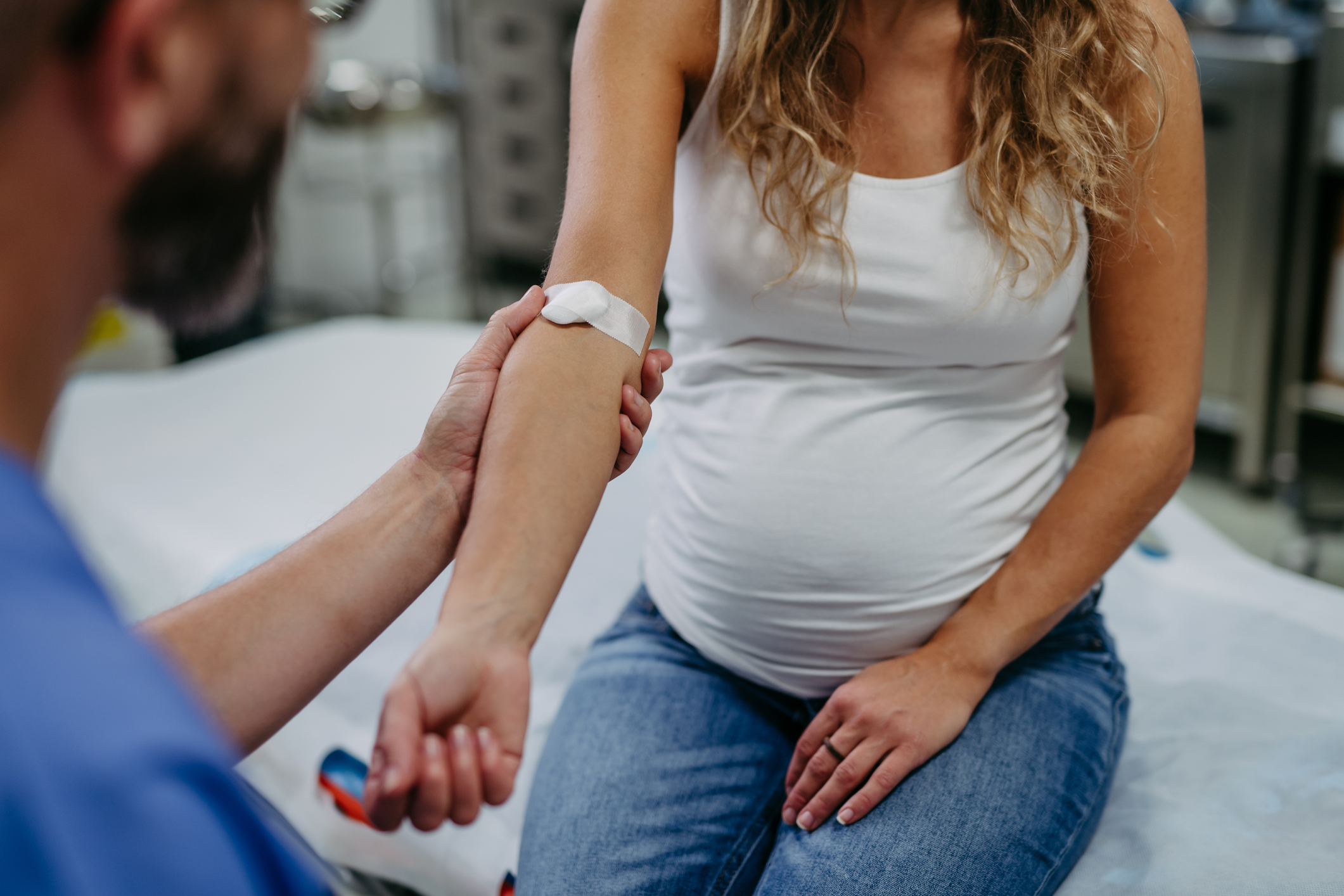Staying Up to Date With Vaccines During Pregnancy
When you're pregnant, your immune system, heart and lungs all work harder to support you and your growing baby. This can make it easier to get sick — and harder to recover. Even if you’re healthy, illnesses like the flu or COVID-19 can be more serious during pregnancy.

When you get vaccinated during pregnancy, your body makes antibodies — proteins that fight disease. These antibodies pass to your baby and help protect them after birth, until they’re old enough to get their vaccines.
The CDC and the American College of Obstetricians and Gynecologists recommend the following vaccines during pregnancy.
Flu Vaccine
Flu vaccines are recommended during flu season (fall and winter), ideally in September or October. It's safe to get vaccinated for flu during any trimester of pregnancy.
Flu risk grows as pregnancy progresses. The flu vaccine helps protect you from serious complications and lowers the risk of hospitalization.
Pregnant people who get the flu vaccine also help protect their babies from flu for the first months after birth, when babies are too young to get vaccinated.
COVID-19 Vaccine
COVID-19 vaccines can be given throughout the year and are safe during any trimester of pregnancy. Getting an updated shot during pregnancy is recommended, even if you’ve had vaccines before. Booster shots are recommended when you’re due for one.
Family and close contacts should also be vaccinated to help prevent the spread of the virus. This helps keep you and your baby safe.
The COVID-19 vaccine is recommended because it lowers your risk of serious illness, hospitalization and complications like preterm birth. It’s especially important if you have other health conditions, such as diabetes or heart disease, or if you’re over age 35.
Tdap Vaccine (Whooping Cough)
Tdap protects against whooping cough, which can be very dangerous for newborns. It's recommended between 27 and 36 weeks of pregnancy. Getting vaccinated helps pass antibodies to your baby before birth.
RSV Vaccine
Respiratory syncytial virus, better known as RSV, can cause serious breathing problems in newborns. It's usually recommended between 32 and 36 weeks of pregnancy during the RSV season. The vaccine helps protect your baby from severe RSV illness in their first months of life.
Other Vaccines
Depending on your health history or risk factors, your provider may recommend other vaccines, such as hepatitis B.
Have questions? Talk with your primary care provider or OB about what’s right for you.
Visit our Flu and COVID Resources to schedule your flu and COVID shots.
Discover Similar Stories
Choose a topic below to read more stories like this one.
Support at Every Step
From conception to delivery, our pregnancy and childbirth providers put you first.





